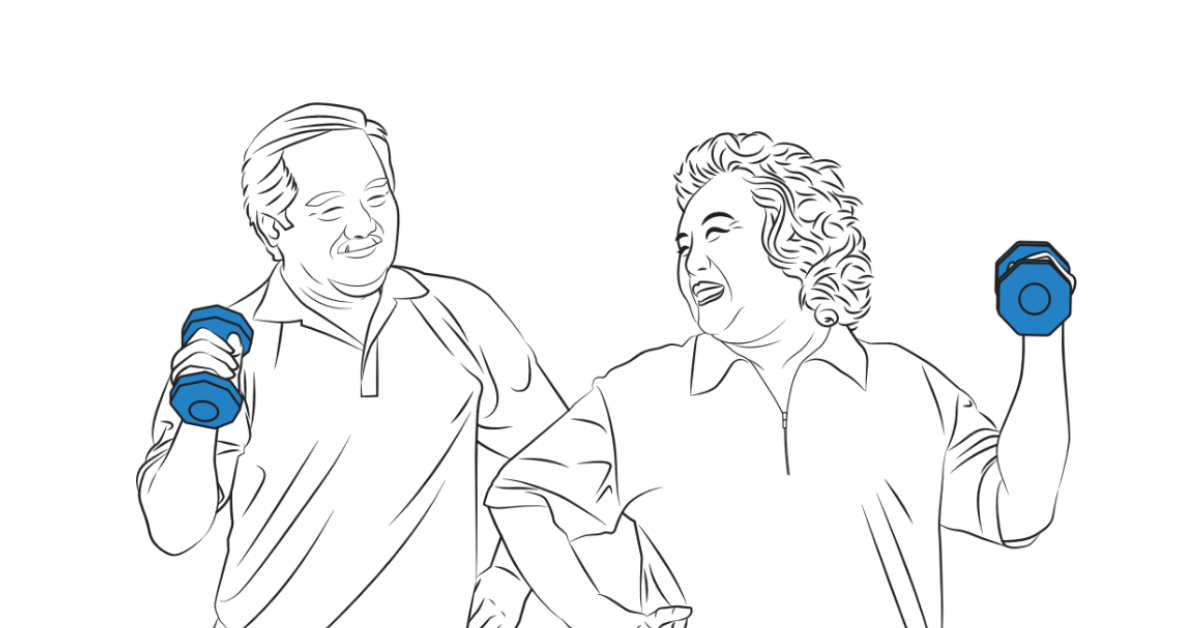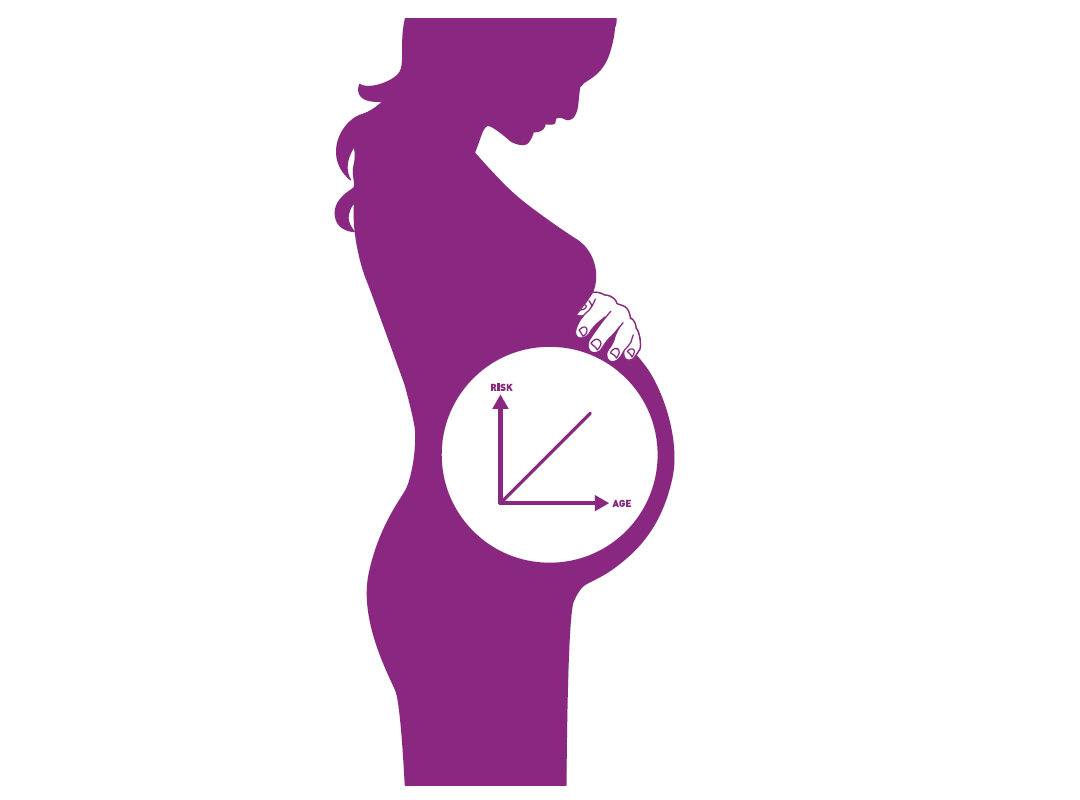The health industry is a multi-billion dollar industry targeting consumers (patients) and trying to influence them to consume their health product or use their gadget with the ultimate goal of staying healthy. From head to toe, cradle to death, everyone wants a pie of this industry.
As a consumer (patient), we need to be aware of the truth in maintaining one’s health. The following is a list of things that one should do to stay ‘young’ and ‘healthy’ in the most economical sense, from a Muslim family physician’s perspective.
1. Try your very best to breastfeed your newborn babies for 6 months to 2 years. Breastfeeding is not easy and requires a great deal of patience. The baby needs to practise again and again to get the technique right. Avoid bottle feeding (especially formula feeding) as much as possible as this may cause nipple confusion resulting in refusal to latch (except for situations of extreme prematurity, transmission of communicable diseases from mother to child or maternal depression). Seek expert advice on this. According to research, breastfed children fall ill less often and have better IQ compared with formula fed ones. Avoid overfeeding too. Childhood obesity is associated with adulthood obesity and its consequent health issues as a result of the obesity.
2. Avoid using electronic gadgets, videos or TV programmes to teach young children language especially non-verbal ones. Instead, look into their eyes and engage them with body language. Speak to them in your own language. Eye engagement is important in speech development. Play, touch, eye contact, laughter, spending time with them lovingly are important. Children who lack eye contact and engagement when adults are engaging them especially at two years and above may require assessment to rule out speech or developmental delay. We worry about Autism, Attention Deficit Hyperactive Disorder or Global Delay. In this situation, early detection and intervention is extremely crucial and can result in a good outcome.
3. Let your children run around in the sun, outdoors, exposed to mud, sand, dirt, occasional rain, learn to cycle and do so as a family. This will enhance family bonds and improve your family’s resistance to illnesses. This helps to reduce allergies too. Being too clean may result in worsening of allergies. We desperately need the vitamin D from a daily 15- to 30-minute sun exposure, especially our kids!
4. Do not smoke. Or stop smoking. Do not be trapped in a smoke-filled environment. This will shorten your lifespan, your families’ lifespan and increase disease burden. Almost all substance (drug) abusers start off with smoking. Leaded petroleum has been banned, but not smoking unfortunately. If you happen to smoke, stop now. The Singapore Fatwa Committee agrees that smoking is prohibited because the harm on the smoker and the people around him is clear and definite, based on a fatwa issued in 2006[1].
Furthermore, there are studies that show that cigarette filters are contaminated with porcine elements[2]. Addiction to cigarette smoking is one of the hardest to shed. I would recommend not to start in the first place. I have counselled many smokers on the dangers of smoking and the ill effects on their loved ones but many seem to be in denial. I know of a father who smokes but it was his non-smoking daughter who developed tongue cancer. I know of another father who smokes and the young adult son who also smokes, had developed leukemia. I know of a husband who smokes and his non-smoking wife developed tongue cancer. I also know of a patient who smokes and developed oesophageal cancer. I have patients who had a stroke as a result of smoking. My own relative passed on of heart attack due to smoking. I have seen enough suffering as a result of the ill effects of cigarette smoking. The one thing that can greatly reduce disease burden is smoking cessation.
5. Exercise, exercise, exercise. Start early, start young, start now, you’re never too old. Don’t stop and keep at it. If you’ve had a heart attack, stroke, injury, knee issues, we recommend rehab (exercise) after assessment by a doctor. If you want to reduce the risk of cancer, exercise regularly.
6. For the ladies, try to get married by the age of 25, conceive before 30 to reduce the risk of breast cancer[3], and complete the family before 35 to reduce the risk of chromosomal abnormalities[4]. For a marriage to last, spouses need to respect each other, speak nicely and not confrontationally, and understand that both need to compromise and make sacrifices for each other. Consult one another before making big decisions. Do not cheat or lie to one another as this erodes trust. The emotional bank account needs to be topped up regularly with kind words, intention and acts.
“And of His signs is that He created for you from yourselves mates that you may find tranquility in them; and He placed between you affection and mercy. Indeed in that are signs for a people who give thought.”
– Surah Ar-Rum, 30:21
7. If you want to keep dementia at bay, learn new skills, new exercises, new games, new hobbies, make new friends, learn Arabic and Tajweed, learn new languages and learn new things consistently. Basically, let the brain make new synaptic connections daily when you learn new things daily. This will reduce the risk of dementia which is literally loss of brain matter and synaptic connections. Also make sure that your chronic diseases (type II diabetes mellitus, hypertension, hyperlipidemia, asthma, etc.) are well controlled too.
8. Does vitamin C help in improving your health? Studies have shown that vitamin C supplement does not improve your immune system[5]. In fact, it may lead to the formation of urinary stones instead[6]. Instead take fruits regularly but in small quantities as fruits are simple carbohydrates in nature. The natural vitamins normally reside in the skin of the fruit (e.g. apple, pear, grapes, guava, kiwi etc.)
9. Do we really need supplements? Unless you cannot eat a balanced diet (poor dentition, poor appetite), health supplements are not essential to your well-being. If you eat a balanced diet, exercise regularly and have regular (daily) exposure to the sun for 15 minutes, these should provide us with the necessary nutrition, minerals and vitamins to stay healthy.

10. Enough sleep (good, uninterrupted sleep for 5 or 6 hours) helps your mind stay focused. If you have a snoring issue, this may hinder your sleep. This condition is also known as Obstructive Sleep Apnea. It makes you wake up multiple times to breathe without you realising it resulting in insufficient rest when you wake up and you are prone to getting sleepy in the early evening especially while driving home. You may even fall asleep behind the wheel while driving. Consult your family physician if you have this issue.
11. Principles of weight loss (also good for diabetic patients to adhere to):
a. Intermittent fasting (if you are on diabetic medication, please
check with your physician before embarking on intermittent fasting). Basically, when you wake up from your sleep in the morning, skip your breakfast, milk and sweetened beverages. Instead, take plain water or unsweetened coffee/tea. Break your fast at lunch time or dinner. Intermittent fasting helps us to use up our reserves in our liver thereby reducing our risk of getting fatty liver. Since the liver is in a fasted state, our body will then draw energy from our fat stores to use as fuel.
b. Avoid simple carbohydrates.
Simple carbohydrates get digested quickly into simple sugars which then induce insulin production to lower these sugars. Insulin is a growth hormone. Hence, stimulating our insulin production when consuming high glycaemic foods (white rice, white flour, sugar, brown sugar, fruits, fruit juices, honey, etc.) may result in weight gain and difficulty in shedding it.
c. Eat complex carbohydrates (vegetables, brown rice, basmati rice, chapatti, spaghetti, etc.), protein and have a balanced diet. Follow My Healthy Plate portions. Avoid consuming recycled oil or trans fats.
d. Exercise consistently three to five times a week, one hour per session, resistance training, cycling, tennis, badminton, jogging, brisk walking, swimming, etc. At the end of every exercise regime, do squats 5 to 10 times. This helps in full flexion of our knee joints, hence preserving them. them. This movement is much needed during prostration and sitting down during prayers.
12. Go for regular health screening (weight, blood pressure, glucose levels, cholesterol levels, mammogram, Pap
smear, and stool test for occult blood) so that diseases can be detected early. Early detection and intervention can result in a good outcome. Be frank to your family physician and inform him or her of your worries.
13. Get medical advice from physicians. Verify facts found on Google and social media with a physician and do not be taken in by fake news.
I have spelt out the most effective ways to stay healthy but the list is by no means exhaustive. Do consult your family physician regularly when it concerns your health and arm yourself with the required knowledge to stay healthy always! ⬛
[1] MUIS, Fatwa deliberations regarding smoking, https://muisfatwa.pressbooks.com/chapter/medicine-health-and-treatment/#smoking, (December 10, 2018).
[2] Ross Mackenzie, Simon Chapman, “Pig’s blood in cigarette filters: how a single news release highlighted tobacco industry concealment of cigarette ingredients”, https://tobaccocontrol.bmj.com/, (July 5, 2014).
[3] British Journal of Cancer. “Breast cancer risk by age at birth, time since birth and time intervals between births: exploring interaction effects”, https://www.ncbi.nlm.nih.gov/pmc/articles/pmc2361726/, (December 14, 2004).
[4] Obstetrics & Gynecology. “Impact of maternal age on obstetric outcome”, https://journals.lww.com/greenjournal/fulltext/2005/05000/impact_of_maternal_age_onobstetric_outcome.11.aspx, (May 2005).
[5] American Journal of Lifestyle Medicine. “Vitamin C in the prevention and treatment of the common cold”, https://www.ncbi.nlm.nih.gov/pmc/articles/pmc6124957/, (February 9, 2016).
[6] Reviews in urology. “Vitamin c supplementation and urinary oxalate excretion”, https://www.ncbi.nlm.nih.gov/pmc/articles/pmc1472830/, (2004).
Dr Zuraimi Mohamed Dahlan is a Family Physician at banyan clinic @ jw and is married to Dr Elly Sabrina Ismail (also a Family Physician). They are blessed with two beautiful children. Dr Zuraimi has been a general practitioner/family physician for 16 years. He volunteers his time and service to community organisations such as the Muslim Healthcare Professionals Association, Club HEAL and Jamiyah Nursing Home despite his busy clinic schedule.









see post simplehold wallet
find out here now https://toruswallet.org/